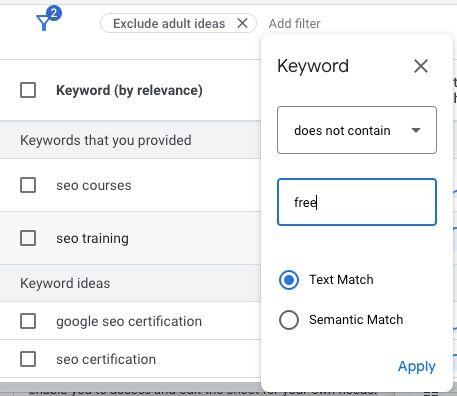The United States has intensified its efforts to regulate short-term rentals, joining a growing list of countries including Canada, Spain, Italy, Greece, and the Netherlands in cracking down on unlicensed listings. In a significant move reflecting this global trend, Airbnb has recently removed over one thousand unauthorized rental listings in New Orleans. This latest development marks a major update for tourists and local authorities alike, as cities strive to balance the booming short-term rental market with housing regulations and community concerns.
US Strengthens Regulations on Unlicensed Short-Term Rentals Following International Precedents
In a move reflecting a growing global consensus, US authorities have escalated their efforts to regulate unlicensed short-term rentals, aligning their policies with those enacted in Canada, Spain, Italy, Greece, and the Netherlands. These countries have pioneered robust legal frameworks aimed at preserving neighborhood integrity, ensuring safety standards, and securing tax compliance. The US crackdown targets platforms like Airbnb, which has recently removed over one thousand listings in New Orleans alone, signaling a stricter enforcement phase designed to clamp down on illegal rentals that bypass municipal regulations.
Key elements of the new regulatory approach include:
- Mandatory registration and licensing for all short-term rental hosts
- Stringent penalties for non-compliance, including hefty fines and delisting of offending properties
- Improved data sharing between rental platforms and local governments
- Enhanced inspection protocols to verify safety and zoning adherence
| Country | Regulation Focus | Enforcement Method |
|---|---|---|
| Canada | Mandatory Licensing | Platform Data Sharing |
| Spain | Host Registration | Heavy Fines |
| Italy | Safety Inspections | Listing Removal |
| Greece | Tax Compliance | Automated Monitoring |
| Netherlands | Rental Time Limits | Municipal Enforcement |
Impact of Airbnb Listing Removal on New Orleans Tourism and Local Economy
The removal of over one thousand Airbnb listings in New Orleans marks a significant moment for both the city’s tourism sector and its local economy. This measure, aligning the US with other countries like Canada, Spain, and Greece, targets unlicensed short-term rentals that often operate outside regulatory frameworks. While this crackdown aims to preserve housing availability and ensure tourist safety, it has also prompted varied reactions from stakeholders. Local businesses that once relied on the influx of Airbnb tourists fear a potential decline in visitor numbers, while community advocates emphasize the need for affordable housing and neighborhood preservation.
Key impacts observed include:
- Reduction in short-term rental availability, increasing demand on traditional hotels
- Potential shift in tourist demographics, with some seeking alternatives outside city limits
- Economic ripples affecting ancillary services such as local restaurants, transportation, and cultural tours
- Enhanced compliance with city regulations aiming to balance tourism growth with resident wellbeing
| Sector | Impact | Short-term Projection |
|---|---|---|
| Tourism | Decrease in informal rental options | Moderate decline in visitor stays through platforms |
| Local Economy | Reduction in tourist spending at neighborhood businesses | Possible increase in hotel revenue compensating losses |
| Housing Market | Increased availability of long-term rentals | Stabilization in rental prices |
Guidance for Tourists Navigating Short-Term Rental Restrictions in Key US Destinations
Travelers planning stays in popular US cities must now navigate increasingly stringent regulations on short-term rentals. Following recent enforcement efforts in New Orleans, where over one thousand Airbnb listings were removed for non-compliance, tourists should prioritize booking accommodations compliant with local laws. Key destinations such as New Orleans, New York City, and San Francisco have adopted robust permit systems designed to protect residential communities from illegal rentals and ensure safety standards. To avoid cancellations or fines, tourists are advised to:
- Verify permit numbers and cross-check listings directly with municipal registries.
- Prefer licensed properties explicitly marked as compliant on rental platforms.
- Consult official tourism websites for the latest short-term rental policies and updates.
For easier reference, here is a snapshot of short-term rental permit requirements in select US cities:
| City | Permit Required | Max Rental Days per Year | Platform Compliance |
|---|---|---|---|
| New Orleans | Yes | 90 | Airbnb removes unlicensed listings |
| New York City | Yes | 30 | Strict enforcement, heavy fines |
| San Francisco | Yes | 90 | Mandatory registration for hosts |
To Conclude
As the United States aligns with Canada, Spain, Italy, Greece, and the Netherlands in tightening regulations on unlicensed short-term rentals, the recent removal of over one thousand Airbnb listings in New Orleans marks a significant step toward enforcing compliance and preserving local housing markets. Tourists can expect increased scrutiny and a shift toward fully licensed accommodations as regulatory bodies heighten efforts to balance the growth of the short-term rental industry with community concerns. This development signals a broader global trend aimed at ensuring transparency, safety, and fairness in the rapidly evolving travel landscape.




